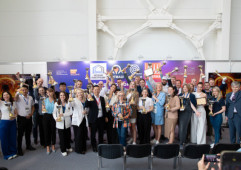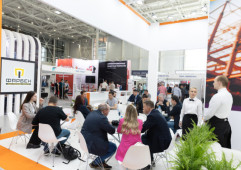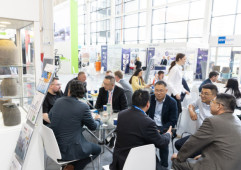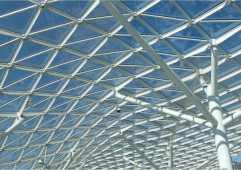MMK Supplies Steel to FAIR Project for Producing Special Magnets
Magnitogorsk Iron and Steel Works (MMK), a Metal-Expo regular exhibitor, has produced 800 tonnes of steel, which will be used to manufacture magnets for the international FAIR project on the study of elementary particles.
The European Facility for Antiproton and Ion Research (FAIR) is the largest international particle accelerator research centre for nuclear physics currently being built in Germany. Russia is one of 17 countries participating in the FAIR project and is second to Germany in terms of investment and intellectual potential.
One of the project’s main Russian participants is the Budker Institute of Nuclear Physics, part of the Siberian branch of the Russian Academy of Sciences (BINP SB RAS). Its specialists will manufacture three magnets from Magnitogorsk’s steel for the international project on elementary particles: two for the accelerator and one for the particle detector.
Steel is the primary material in the production of magnets. As noted by Yury Tikhonov, associate member of RAS and scientific director of the department of Elementary Particle Physics at BINP SB RAS, it is also generally a specific steel with particular properties. “Only specialists at the Magnitogorsk Iron and Steel Works, with whom we have a long-standing relationship, are capable of producing steel suitable for the production of the magnetic systems for the FAIR project,” he pointed out.
The steel used for the FAIR magnets is highly magnetic, while also maintaining good mechanical properties: 240 MPa, which is equivalent to an impact of 2000kg per 1 sq cm. The unique melting and rolling process allows the material to remain homogenous throughout all 800 tonnes. A distinctive characteristic of this steel is its high magnetic permeability, which is achieved by its extremely high level of purity, which refers to the absence of impurity elements. The high mechanical properties are achieved by the addition of a special alloying agent.
According to Yuri Tikhonov, one of the magnets intended for the accelerator is particularly specialised, as it will have to function while exposed to extremely high levels of radiation – something conventional materials cannot withstand. “That’s why we are planning to use a distinct production method based on a magnesium alloy and insulation made of special materials. We already produced a similar magnet using MMK’s steel ten years ago, which is working reliably in experiments,” he commented.



